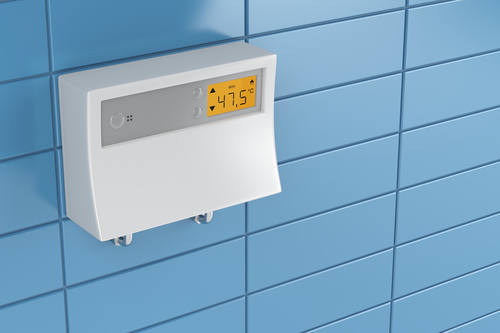Understanding the different parts of your HVAC can save you a lot of trouble during its lifespan. In fact, by learning more about the various systems your HVAC uses to regulate the temperature in your home you can probably manage to make it last at least a few years longer than it would have otherwise. That said, it’s also important to learn about cutting-edge technology that you can use to supplement or replace your existing utility infrastructure. After all, you’ll want to make sure you’re always in step with the times so that you can reap the best savings. One thing every modern homeowner should understand is how a tankless water heater works. These relatively new and very important systems can offset your hot water costs by significant margins, making your home more efficient and leaving your bank account in better shape at the end of each month.
Before You Learn How a Tankless Water Heater Works… What Is It?
Some people have never heard of tankless water heaters before, so let’s start at the top. For those of you who are unfamiliar with these systems, they serve a singularly valuable purpose: they provide hot water only when required. Let’s compare that to the way a typical water heater functions:
Most standard water heaters heat up water in bulk quantities and must keep it hot in case it is needed. A homeowner who wants to be able to turn on the tap and have hot water must, therefore, run their water heater for extended periods of time during stretches of cold or cool weather. If they don’t, the water in the tank is liable to cool down again before they have a chance to use it. Because traditional water heaters must run for hours, they often rack up significant costs. As such, the average homeowner in the United States spends at least $40 per month on hot water alone. That might not sound like much compared to some of your more significant bills, but it can build up over time.
Tankless water heaters are different because they produce hot water on demand. Essentially, they heat the water as it circulates through the unit so that it’s only heated when on its way to an application somewhere in the home. There are several distinct kinds of tankless water heaters, which we’ll look at below. Use this overview to compare your options if you are wondering how a tankless water heater works and considering one for your home.
- Whole House Units: whole house units replace existing water heaters, and are installed in central locations (probably near your HVAC). They can provide hot water throughout the home or building where they’re installed. As such, they allow homeowners to save considerable amounts of space in these areas since they tend to take up a great deal less space than a traditional water heater would.
- Point-of-use Units: a point-of-use unit is a tankless water heater that is installed to provide heat to the water used in a single water fixture. You might have one for your kitchen sink, another for your shower, and so on. These units are typically even smaller than whole house units, and will often be near the water fixture that they are responsible for heating.
Both whole house units and point of use units can come in several different forms, so it’s important to understand the differences between them. Here’s a primer on the various kinds of tankless water systems you can purchase:
- Gas Powered: gas powered systems use a propane or natural gas powered burner to heat the water that runs through them. They are relatively easy to install but may require owners to install a larger gas line than the ones they used for traditional gas-powered water heaters.
- Electric: these systems use an electrical element to heat the water that runs through them. As such, they must be hardwired to the circuit breaker panel or electrical panel in the home. They tend to have a lower power output than gas systems but are still more than capable of providing enough hot water for most homes. They also tend to be smaller and less expensive to purchase.
The Value of Knowing How a Tankless Hot Water Heater Works
Making changes to the utility systems in your home can seem like a daunting task, but the more research you do at the outset, the more comfortable you will be during the process. Now that you know how a tankless water heater works, you should be able to use this guide to make informed decisions about how to upgrade your home and call professionals for more information if you are uncertain about anything. With luck, you should find it easy to make changes that keep you comfortable while saving you money.
Check with us here at Valley Comfort Heating and Air, our customers love our attention to detail and our friendly, affordable service. (707) 539-4533

